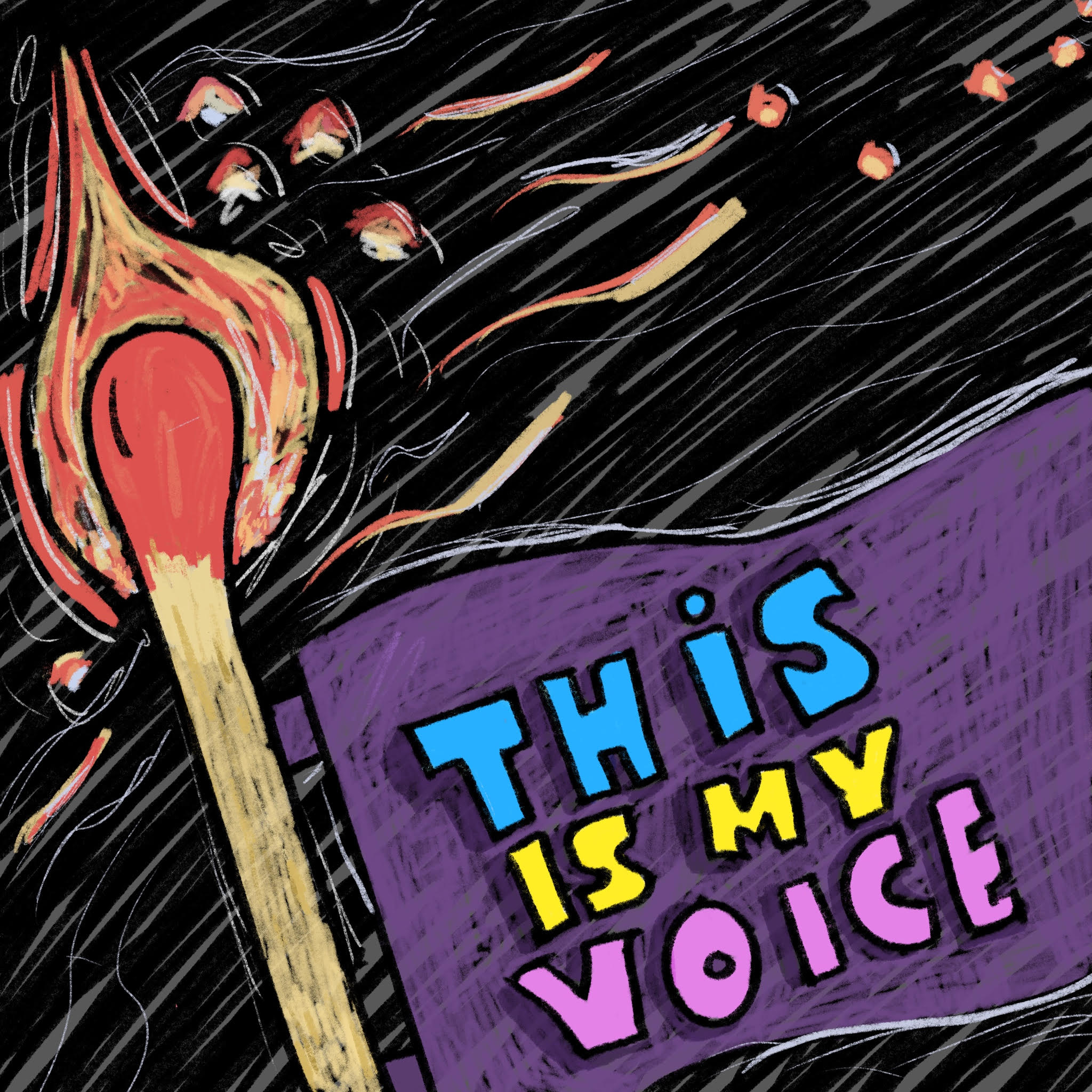I spent the final four months of undergrad at York St. John’s University, where I took a creative writing module.
I honestly don’t remember any of it very well, apart from two gems from the instructor: First, that I had been using “per se” incorrectly my whole life. (Thanks.) And second, in response to a piece that I had written, she told me that if I didn’t like the sound of my voice, I could try exercises to fix it by repeating “This is my voice” in a lower register that sounded more masculine.
It makes me flinch to read that back. But at the time, I didn’t think it was an unkind thing to say. If you don’t like the sound of your voice, if you don’t like the way it makes people react to you, then of course, by all means, go ahead and fix it!
As if there had been something broken in the first place.
For my whole life, I had been conditioned to believe that I was wrong—too shy, too gay, too feminine, too quick to wave my arms when I talked. So, of course I didn’t think it was an unkind or unhelpful thing to say.
What I needed was for someone to ask me why I hated my voice so much. What I needed was for someone to tell me that I wasn’t the problem, that my voice wasn’t wrong, that it wasn’t too feminine or too high-pitched—that it was uniquely mine.
Literally and figuratively, I can think of few things more intimate or sacred to a person than their voice. Your voice is your presence, your way of communicating with the world, of sharing the universe of ideas inside your head with the universe outside it.
It’s been nearly fifteen years. And yes, I can see perfectly well how it would have benefitted me to change my voice: to pick up a style of corporate drag like the straight cis men I’ve consistently seen get ahead—not because of their talent and brilliant ideas, but because they understand the cultural deference to a man with a certain level of confidence, a certain way of speaking, and an ability to pick up and parrot key concepts.
Now that I’m older and I’ve made some fairly substantial changes in my life in the past few years, I ask myself: would I even want that? Sure, I want respect. I want my fair share of job opportunities. But I want to earn it. Not some make-believe version of myself, not because I spread my legs when I sit or because I have a deep voice.
My voice is mine. It belongs to me. This is my voice.
If you enjoy my writing, please consider supporting me on Patreon for as little as $2/month!


